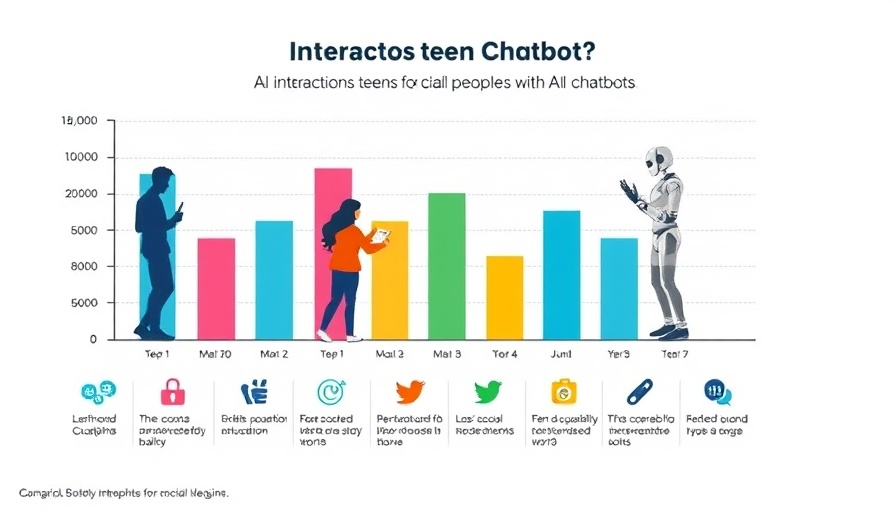
Tech Giants Team Up Against Australian Media Regulations
As the digital landscape continues to shift, significant challenges arise for tech giants like Meta and Google. Recently, these companies have made headlines by seeking assistance from the Trump administration to combat Australian regulations they deem discriminatory. This week, a coalition of technology companies, including Apple and X, co-signed a request urging the U.S. Government to intervene against Australia’s News Media Bargaining Code.
The Impacts of Australia’s News Media Bargaining Code
Officially implemented in 2021, Australia's News Media Bargaining Code requires tech platforms to compensate local news organizations for the use of their content. This legislation was designed to help mitigate the financial pressures that digital platforms have imposed on traditional publishers. It effectively redistributes a portion of ad revenue—totaling around $200 million annually—to support local journalists and news outlets. However, both Meta and Google have long criticized this law as unfair, arguing that implementing such fees could harm their business models.
Backlash and Evolving Negotiations: The Road to Resistance
During the earlier stages of this negotiation, Meta temporarily banned Australian news from its platforms, creating a standoff with the government. Eventually, a temporary agreement was reached, allowing both companies to strike revenue-sharing deals that still underwrite local journalism efforts. Yet, dissatisfaction looms—recent claims by Meta of a “de-prioritization of news” suggest they wish to withdraw from these agreements altogether.
Understanding the U.S. Tech Industry’s Position
Facebook's shift towards an anti-news stance, driven by changes in its internal policies, highlights a growing trend among major tech companies to reevaluate their roles in news dissemination. Many tech executives argue that they should not be burdened with the financial responsibility of funding journalism, paving the way for a potential titan-led push against global legislative pressures.
Trump’s Business-Friendly Posture: An Unlikely Ally?
In opting to seek assistance from the Trump administration, Meta and other tech entities are banking on a sympathetic view toward American interests, reflecting the former president's “America First” approach. This action has raised eyebrows, particularly given Trump's largely controversial and often polarizing relationship with media outlets. The Computer and Communications Industry Association (CCIA)—which represents these tech firms—calls the Australian legislation a “coercive and discriminatory tax”, emphasizing this concern to U.S. trade representatives.
Future Directions: Possible Outcomes of this Coalition Effort
The outcome of this high-stakes negotiation could set a significant precedent, encompassing a legal battle that transcends borders. Should U.S. tech companies successfully influence the withdrawal or modification of Australia’s bargaining code, it might embolden them to challenge similar regulatory efforts in other countries. Alternatively, if they fail, it could signal a deeper entrenchment of norms that require technology firms to financially support local journalism.
The Broader Implications for Global Trade and Tech Regulation
This development underlines an essential conversation about the intersection of digital regulations and international trade. As countries grapple with how to manage the influence of tech giants, the outcomes tonight in the U.S. can also reverberate on a global scale. The need for clearer frameworks that govern the digital economy highlights the growing complexities surrounding censorship, media rights, and corporate responsibilities.
What Business Owners Should Consider
For business owners, understanding these changes is crucial. The evolving media landscape influences advertising strategies and how customer engagement is approached. Being aware of how these regulations could shift the financial burdens in media, along with their implications for content access and promotional strategies, can help you adapt your business model effectively.
In these uncertain times, staying informed about global negotiations and regulations can help businesses maintain an edge. Strategies for adapting to these shifts could involve diversifying marketing efforts, focusing on alternative channels for news consumption, and being aware of broader social dynamics affecting consumers' decisions.
Stay updated on these developments, as the relationship between tech platforms and regulatory environments continues to evolve. This situation illustrates not only the challenges tech giants face but also the importance of developing flexibility in business strategies amid regulatory changes.
Take the time to assess your own strategies in light of these developments. Awareness of regulatory shifts can empower you to make informed decisions that strengthen your business.
 Add Row
Add Row  Add
Add 




Write A Comment